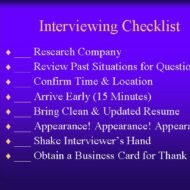Posted by Managementguru in Human Resource, Interview Questions, Principles of Management
on Feb 27th, 2014 | 0 comments

Interview Interesting Aspects An interview can be explained as a mutual conversation or a one to one meeting that gets stretched into a “recruitment process or promotion.” In French, from which it originates interview means ‘inter-sight’ and in Latin, it is interpreted as ‘seeing each other.’ Nowadays interview is a powerful tool in psychology, in the healthcare profession as well as in business. Too many approaches in the interviewing process may be successful as fact finding tools but without looking at the dynamics existing between an interviewer and interviewee; such meetings then become lifeless. The notion of an interview should not only aim at collecting scientific data but also look into the human aspect to capture the essence of a person. Only a trained interviewer must be allowed to evaluate the interviewee’s motivation, personality component and the influence of environmental/ emotional problems on him/her. The two common pitfalls in an interview are the ‘stereotyping’ of the individual and the unconscious exercise of personal bias. Is it wise to judge a person based on similarities to some other person/ trait? ‘Halo Effect’ is the tendency to judge a person based on one of a few specific characteristics- the traits liked or disliked by the interviewer need not be superimposed on the interviewee to decide if he is suitable for the job. All depends on the interviewer and his characteristics which help or hinder an interview from the interviewee’s view point. Care must be taken on the part of the interviewer not to conclude the interview in an abrupt manner and it is also necessary for him to create a favorable image for the company in the mind of the interviewee. The interview is not to be considered merely as a selection technique, but as a means of in- depth analysis that facilitates closer and enhanced communication. This approach is very much necessary for psychologists, teachers, managers, leaders and the like. Definition: The interview is a conversation with a purpose. There are three purposes. 1. Obtaining information– Collecting relevant data about the candidate’s background, training, education, experience and interests. 2. Giving information– Apprising the interviewee with the present position of the company, the future plans, specific job and the personnel. 3. Motivation– Instigating the candidate to join the company Advantages of Interview: Interviews prove as a better means to measure the ability and traits of a personality rather than through written tests or other techniques. It is easy to determine how a person reacts in a conversation and whether he is good looking (here it means if he/ she is presentable, looks are equally important). A skilled interviewer can easily determine the personality traits such as loyalty and responsibility that can be expected from the candidate during this personal meeting. Limitations of Interview: · Stereo typing · Halo Effect · Personal bias Interviewing Techniques: A. Patterned Interview: This was developed by Mc. Murry. Senior recruitment, promotion and appraisal interviews fall under this category. This patterned interview contains no questions related to ‘job skills’. Basically it is conducted to appraise personality, motivation and interests. Reference checks and academic records determine knowledge and job competencies. The following personality traits could be measured through patterned interview according to Mc. Murry: i. Stability ii. Ability to get along with others iii. Self-reliance iv. Willingness to accept responsibility v. Freedom from emotional immaturity vi. Motivation B. Directive Style: This type of interview is appropriate when the interviewer seeks factual information only where the interviewee is not given much freedom of expression and so becomes defensive. There are also chances that the relationship between the interviewer and the interviewee might be impaired. C. Non-Directive Style: This requires more time, and suitable for exploring sensitive matters, understanding feelings and...


